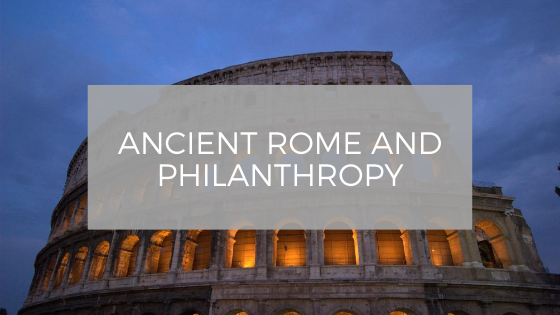Although the roman empire is often seen as harsh and unforgiving, an element of philanthropy did exist in the ancient world. As heirs, conquerors, and unconscious emulators of the Greeks, the Romans assumed more regulation of what thee greek called philanthropia and believed it to be among the highest honors and obligations of their civilization.
A prolific learner Seneca composed manuals on the arts of proper gift-giving; he also tutored the infamous Emporer Nero. When working with Nero he emphasized that appropriate giving must generate gratitude between the vertical ranks of Roman society and argued that for philanthropy to be done right, it has the ability to form the glue that held the Roman people together.
Roman rulers took this advice in stride and perhaps used it for their advantage. Emperors asserted exclusive rights to make choice gifts of baths, fountains, gymnasia (ancient facilities similar to the modern-day gymnasium), and gladiatorial games to the Roman population. The tendency for many donors to use this platform for self-glorification was unfortunately uncommon. The previously stated philanthropy was now twisted into a dishonest gain for those who were in power. The conservation of family wealth did little to help larger numbers of the destitute and poor in growing Roman imperial cities. To the Romans, the philanthropy also meant the proper conduct of diplomacy, it did elevate the kindness and importance to foreign powers.
Although philanthropy wasn’t entirely used for good, it did have a large place to play in the ancient empire.

